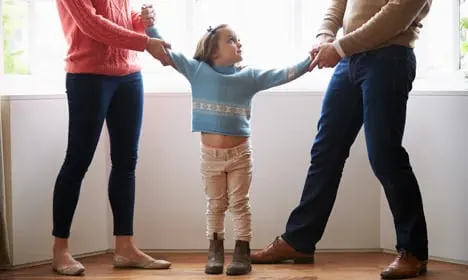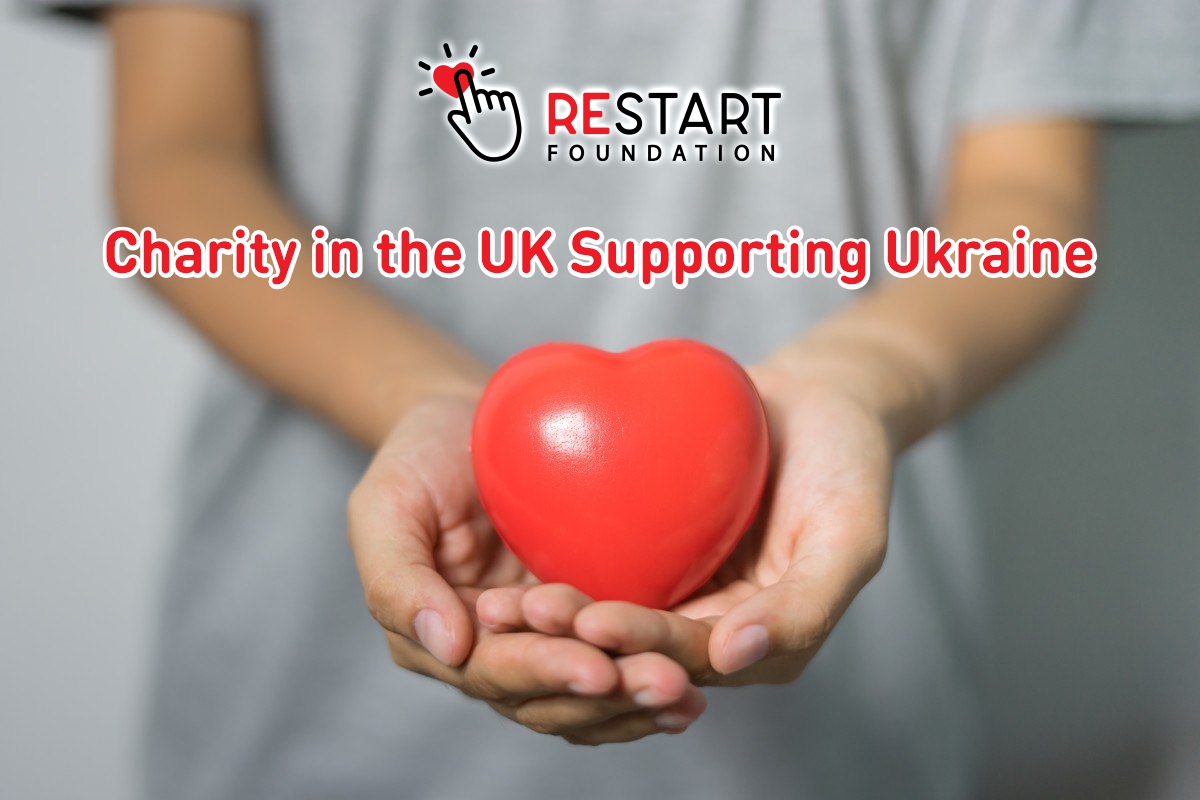If you discover a lost child in Denmark and attempt to assert that the child is yours, it is totally illegal. Making such a claim would classify you as a kidnapper, prompting a police investigation for both you and the child.
However, if you come across a lost child, the correct course of action involves handing them over to the authorities. This step enables the authorities to initiate the process of locating the child’s rightful parents or guardians.
What Is The Legal Framework in Denmark?
In Denmark, the legal framework forms the bedrock of the country’s governance and societal structure,
Denmark lost child law
Denmark has a comprehensive legal framework that addresses the issue of lost and found children. The legal basis for dealing with lost children is primarily outlined in the Danish Act on Social Services, which sets the guidelines for the care and protection of children. This Act specifically addresses situations like “Denmark claim lost child” and makes it illegal.
In addition, the Act emphasizes the best interests of the child as the paramount consideration in all matters concerning their well-being.
In cases of lost children, the Act mandates that authorities prioritize reuniting the child with their legal guardian as soon as possible. Moreover, it also empowers the police and social services to take necessary actions to ensure the child’s safety and well-being while locating their guardian.
The role of relevant government agencies and authorities:
Several government agencies and authorities play crucial roles in handling cases of lost children in Denmark:
Police: Upon receiving a report of a lost child, the police take immediate action to ensure the child’s safety.
Moreover, they initiate efforts to locate the child’s guardian and also gather information that can aid in the child’s identification.
Social Services: Social services have a pivotal role in cases where a lost child’s legal guardian cannot be located promptly. Additionally, they can provide temporary care for the child while efforts are made to locate the guardian. The well-being and best interests of the child are central to their decision-making.
Municipalities: Local municipalities are responsible for coordinating efforts related to the care and welfare of children. Moreover, they work in collaboration with the police and social services to ensure a child’s safety and eventual reunification with their guardian.
What are the Procedures for Retrieving a Lost Child in Denmark?

In the event of a lost child in Denmark, a well-defined set of procedures and coordinated efforts come into play,
Immediate actions to take upon finding a lost child:
Ensuring the child’s safety and well-being: The first priority upon finding a lost child is to ensure their immediate safety. Moreover, this might involve comforting the child, keeping them in a secure location, and addressing any immediate needs they might have.
Contacting local law enforcement or relevant authorities: Hence, It’s crucial to inform the local police or relevant authorities as soon as possible.
Additionally, the police will initiate the process of locating the child’s guardian and ensuring that the child is safe.
Verification of legal guardianship or custody:
Documents required to establish a relationship with the child: If you’re claiming a lost child and asserting legal guardianship or custody. You will likely need to provide documentation that proves your relationship with the child. This could include birth certificates, adoption papers, or custody orders.
Importance of proving identity and connection to the child: To establish your identity and connection to the child, you might need to provide identification documents, such as passports or ID cards. However, this is crucial for authorities to ensure that the child is being entrusted to a legitimate guardian.
Cooperation with authorities:
Working with the police and social services: Collaboration with the police and social services is vital throughout the process.
Furthermore, they will gather information from you regarding the child’s circumstances, your relationship to the child, and any relevant details.
Providing relevant information to aid in reuniting the child with their guardian: Sharing any information you have about the child’s routines, habits, medical needs, and other pertinent details can aid in efforts to locate their guardian quickly.
Legal procedures for temporary guardianship:
Obtaining permission to care for the child while guardians are located: If the child’s legal guardian cannot be located immediately, you might need to apply for temporary guardianship through the relevant authorities.
Moreover, this process involves demonstrating your capability to care for the child and ensuring their well-being.
Time limitations and responsibilities of temporary guardians: Temporary guardianship comes with responsibilities to provide for the child’s needs during the period when their legal guardian is being located. In addition, there are usually time limits on how long temporary guardianship can last, and these are governed by Danish law.
What are the considerations and challenges associated with this?
Exploring the process of retrieving a lost child in Denmark unveils a range of considerations and challenges, encompassing legal, logistical, and emotional dimensions
Language barriers and cultural differences:
In cases involving lost children, language barriers and cultural differences can pose significant challenges. Effective communication with the child, their legal guardian, and authorities is essential for ensuring the child’s safety and well-being.
Moreover, misunderstandings due to language differences can delay reunification efforts and cause stress for the child. Cultural norms and practices might also impact how authorities and potential guardians approach the situation.
In addition, sensitivity to these differences is crucial to providing appropriate care for the child.
International cases: Interplay between Danish law and other jurisdictions:
International cases of lost children can be complex due to the interplay between Danish law and the laws of other jurisdictions.
However, if the child and potential claimants are from different countries, issues of jurisdiction, extradition, and legal recognition of guardianship can arise.
Additionally, international treaties and agreements might play a role in determining how the case is handled. Cooperation between authorities from different countries is crucial for resolving these cases effectively.
Potential conflicts in cases of disputed custody:
In cases where multiple individuals claim legal guardianship of a lost child, conflicts can arise. In addition, these conflicts might involve biological parents, adoptive parents, relatives, or even foster parents.
Moreover, resolving these conflicts requires a thorough assessment of each claimant’s relationship with the child, legal documentation, and the child’s best interests.
Legal steps for resolving disputes:
When conflicts over custody arise, legal steps are necessary to determine the child’s placement. This might involve court proceedings, where evidence is presented to establish the most suitable guardian based on the child’s welfare.
In addition, Danish courts consider factors such as the child’s emotional and physical well-being, stability, and the ability of potential guardians to provide a nurturing environment.
What Is The Best Interests of the Child?

The principle of ‘Best Interests of the Child’ serves as a guiding light in legal and ethical contexts, prioritizing the well-being and development of children in decisions that affect their lives.
Paramount consideration: What is in the best interest of the child?
The principle of the best interests of the child is a cornerstone of Danish law. It means that all decisions and actions taken regarding a child’s care and custody should prioritize their well-being and long-term development.
Moreover, this principle guides authorities, courts, and potential guardians in making decisions that promote the child’s safety, health, and emotional development.
Child’s emotional well-being and stability:
Maintaining the emotional well-being and stability of a lost child is crucial during the entire process. Being separated from their legal guardian, even temporarily, can be distressing for a child. However, guardians, authorities, and social services need to create a supportive and nurturing environment that minimizes trauma and anxiety for the child.
Balancing the rights of potential claimants with the child’s needs:
Balancing the legal rights of potential claimants with the child’s needs requires careful consideration.
While claimants have their own rights, the focus must remain on what is best for the child. Courts and authorities must weigh the claimants’ ability to provide a stable and loving environment against the child’s emotional and physical needs
Surviving The Lost Child Family Role in Denmark
From the above, we already knew that, in Denmark, as in many other parts of the world, the dynamics of family roles can have a significant impact on individuals’ lives. The lost child role, characterized by withdrawal and invisibility within the family, is no exception. Surviving the lost child family role in Denmark, or any other country, requires a similar set of principles, with a focus on the Danish context.
Understanding the lost child role within a Danish family context means recognizing the impact of cultural and societal norms. Denmark is known for its strong emphasis on equality, open communication, and social support systems. However, in dysfunctional families, these values can sometimes be compromised. Surviving the lost child role starts with acknowledging how these family dynamics may deviate from the Danish societal norm.
In Denmark, mental health and self-care are highly regarded, and seeking professional help or counseling is not stigmatized. To overcome the emotional scars left by the lost child role, Danish individuals can seek therapy or support groups that align with the country’s mental health values. Therapists can help navigate the cultural aspects of the family dynamic and healing process.
Moreover, the Danish welfare system and access to education provide a foundation for personal growth. Lost children in Denmark can take advantage of educational and vocational opportunities to build a better future for themselves, which may not be as readily available in other parts of the world.
Creating a support network, including friends, colleagues, and fellow students, is vital for Danish individuals surviving the lost child role. Denmark’s social inclusivity and strong community ties can be invaluable in this process, as forming healthy relationships outside the family can foster emotional well-being.
Finally, forgiving the past while embracing the Danish values of trust and empathy can be a cornerstone of healing. Danish society is characterized by its emphasis on honesty and genuine connections, which can help individuals let go of the pain and forge a brighter future.
In Denmark, as elsewhere, surviving the lost child family role is a journey of self-discovery and healing. By understanding the cultural context and accessing the country’s mental health resources, individuals can work towards breaking free from the constraints of their family roles and moving towards a happier and more fulfilling life.
Also. watch this video to learn more about surviving the lost child role in Denmark. Let’s go.
FAQs
Can you claim someone’s lost child after 2 hours in Denmark?
In Denmark, claiming a lost child as your own after 2 hours is not legal. The viral rumor suggesting that you can claim a lost child in Denmark if a parent doesn’t show up within two hours has been widely circulated on social media. However, this claim is unfounded.
What is the 2 hour rule for lost children in Denmark?
In Denmark, the 2-hour rule refers to the legal requirement for institutions like schools and daycares to notify the police if a child is missing for more than 2 hours without a valid reason.
Furthermore, this rule ensures a swift response to cases involving lost or missing children to ensure their safety.
What if a child gets lost?
If a child gets lost in Denmark, immediate steps should be taken to ensure their safety and well-being. Contact the police or relevant authorities to report the situation.
Stay with the child, comfort them, and try to locate a law enforcement officer or authority figure who can assist in reuniting the child with their legal guardian.
What are the rights of children in Denmark?
Children in Denmark have comprehensive rights outlined in the Act on Social Services. These rights include the right to protection, care, and participation in decisions that affect their lives.
How much is child support in Denmark?
Child support in Denmark is determined based on factors such as the parents’ income, custody arrangements, and the child’s needs. The amount varies and is subject to change. The Danish government provides guidelines for calculating child support to ensure children’s financial well-being is adequately addressed.
Does Denmark pay children?
Yes, Denmark provides financial support to families with children through various means, including child allowance. Child allowance is a monthly payment made to families to help cover the costs associated with raising children. The amount depends on factors such as the number of children in the family.
What if a child is born in Denmark to foreign parents?
If a child is born in Denmark to foreign parents, they may acquire Danish citizenship if certain criteria are met.
Additionally, the child is entitled to protection and welfare under Danish law, regardless of their parents’ nationality. Parents need to ensure proper documentation and legal processes are followed to secure the child’s rights.
Does Denmark have child support?
Yes, Denmark does have a child support system in place, ensuring financial assistance for children in cases of parental separation or divorce.
How do you deal with a lost child?
Dealing with a “lost child” within a family involves acknowledging the role’s emotional impact and seeking professional help, setting boundaries, and building a strong support network.
How do parents of missing children feel?
Parents of missing children experience profound emotional distress, characterized by fear, sadness, and a sense of helplessness. These feelings stem from the deep longing for their child’s safe return, making it an incredibly challenging and overwhelming experience.
Final Words
In conclusion, the process of legally claiming a lost child in Denmark involves a comprehensive understanding of the legal framework. Moreover also involve guidelines, and considerations that prioritize the child’s well-being and legal rights.
In addition, the Danish legal system, through the Act on Social Services, underscores the importance of reuniting lost children with their legal guardians while ensuring their safety and best interests.
Moreover, navigating this process requires immediate action upon finding a lost child, verification of legal guardianship, and cooperation with relevant authorities.
Resolving conflicts and disputes that may arise during the claim process necessitates careful legal consideration and prioritizing the child’s welfare.
In dealing with lost children, it’s essential to acknowledge challenges such as language barriers, cultural differences, and the complexities of international cases.
Balancing the rights of potential claimants with the child’s needs and well-being remains paramount, guided by the principle of the best interests of the child.











